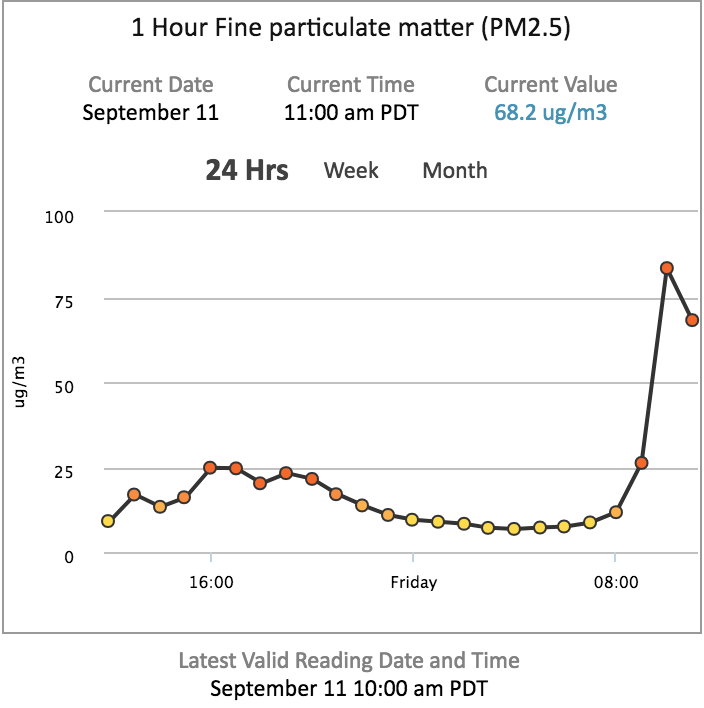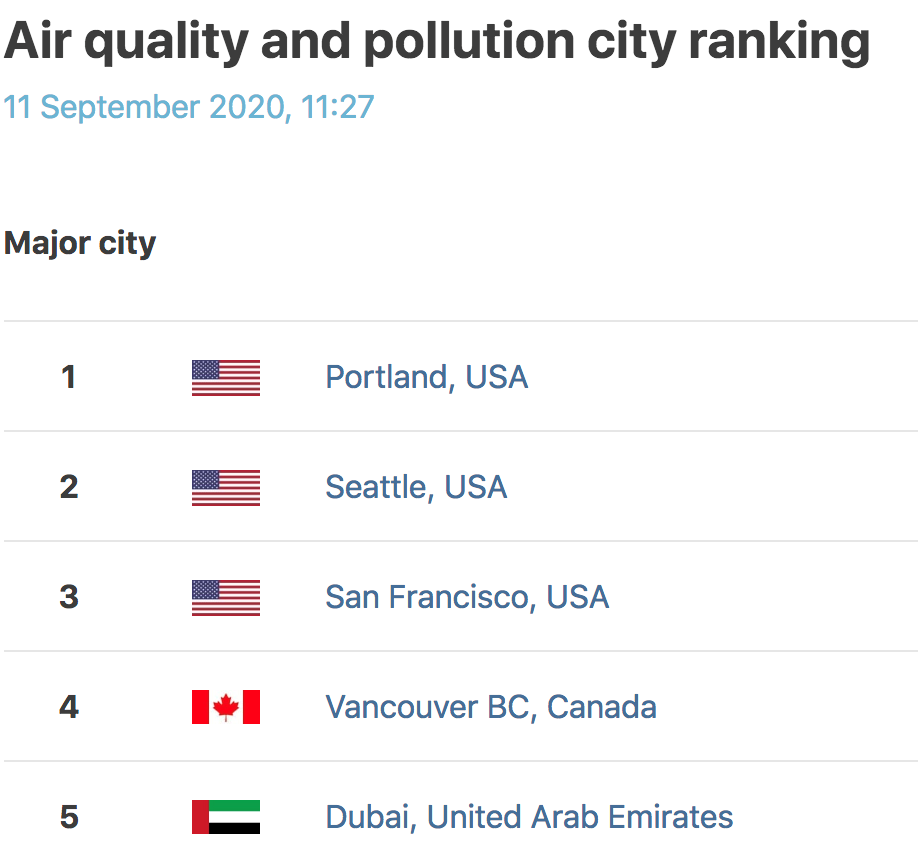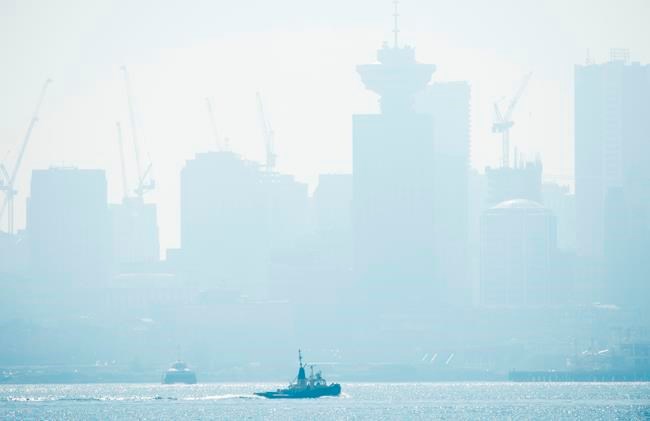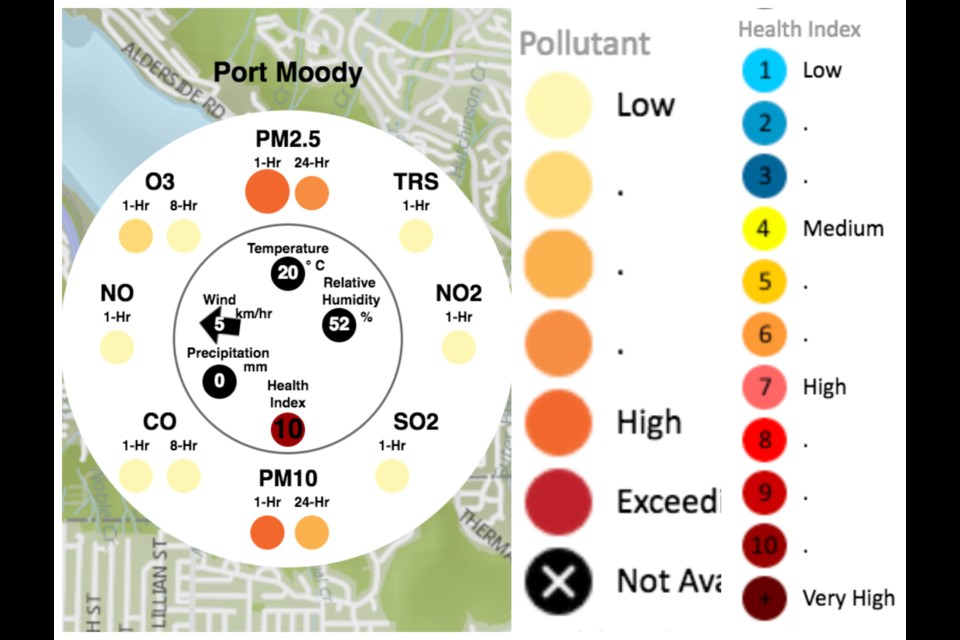Air pollution due to fine particulate matter has reached levels roughly five-times higher than Beijing today as fires continue to burn across Washington and Oregon, blanketing the Metro region in smoke.
By 11 a.m., concentrations of fine particulate matter spiked to 83.5 micrograms per square metre at one Port Moody station run by Metro Vancouver — a level not seen today in such notoriously polluted cities as Shanghai in China or Lima in Peru.

The station reported a "10" on Metro Vancouver’s air quality health index, the highest measure on its 10-point scale and described as “very high.” One website ranking air quality in cities across the globe has slotted the Vancouver region into the fourth most polluted city in the world this morning, after Portland, Seattle and San Francisco.
As a result, an air quality advisory in effect since Sept. 8 continues across Metro Vancouver and wildfire smoke is expected to impact the region intermittently throughout the day, according to Environment Canada.

Wildfire smoke is a complex mixture of gases and particles, with fine particulate matter larger than 2.5 micrometers passing the greatest health risk to humans, particularly those with chronic conditions, like asthma, heart disease, diabetes or chronic obstructive pulmonary disease, known as COPD.
Particles of that size can easily penetrate indoors because of their small size, notes the weather agency.
“Persons with chronic underlying medical conditions or acute infections such as COVID-19 should postpone or reduce outdoor physical activity until the advisory is lifted, especially if breathing feels uncomfortable,” wrote Environment Canada in its special air quality statement.

Health effects from wildfire smoke can range from a sore throat, itchy eyes and a runny nose to a mild cough, wheezy breathing and even headaches, notes the BCCDC. Pregnant women, infants and young children, as well as the elderly are also at a higher risk of experiencing health problems from wildfire smoke.
“Some people may experience more severe symptoms and should seek prompt medical attention,” recommends the British Columbia Centre for Disease Control, adding you should call 811 or speak to a doctor if you experience shortness of breath, a severe cough, dizziness, chest pain or heart palpitations.
Short of those severe symptoms, there are several things you can do to protect yourself from wildfire smoke. Indoors, a portable HEPA air cleaner can filter out the contaminated air in a section of your house, offering a safe haven for you or your family.
If you don’t have access to your own HEPA filter, you might consider visiting a shopping mall or one of the community centres and libraries recently reopened across the Tri-Cities.
For those forced to work outdoors, using an N95 mask — though not always an easy thing to find these days — is recommended.



